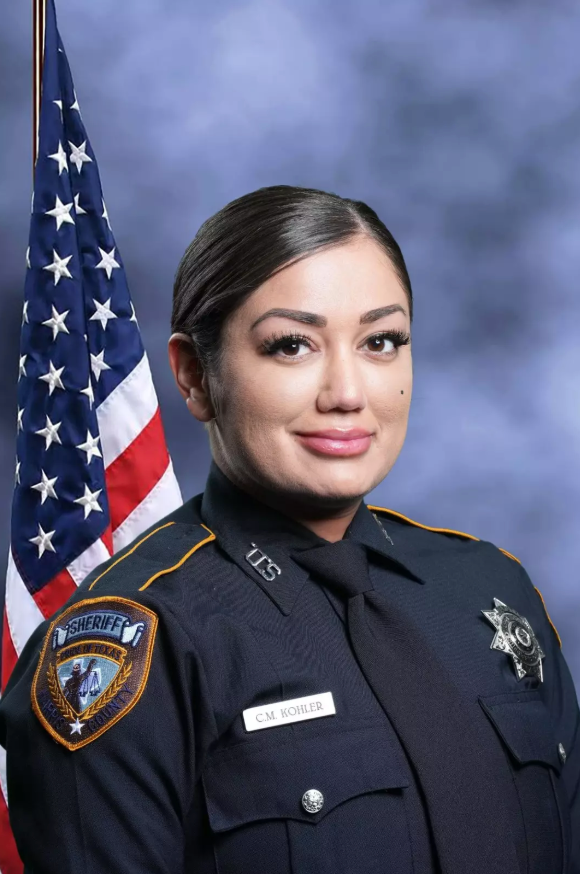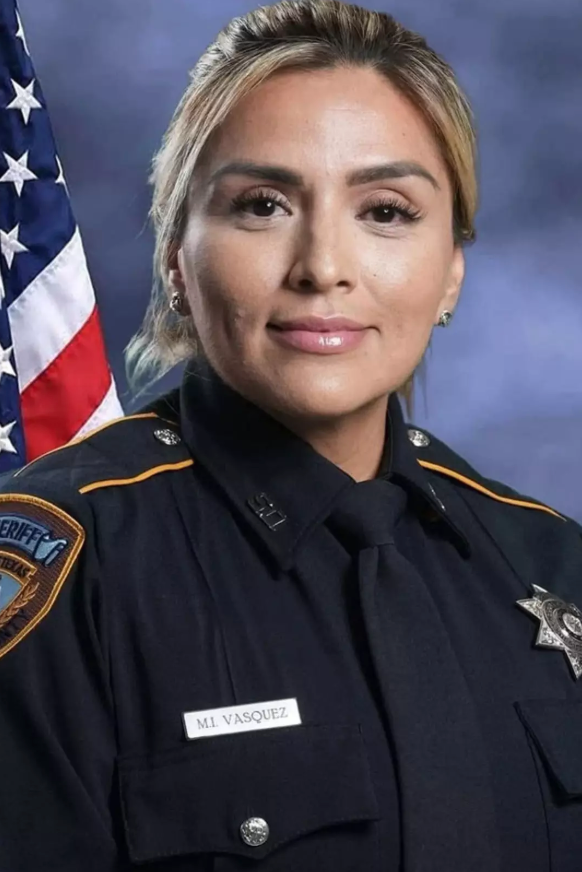In just six weeks, the Harris County Sheriff’s Office (HCSO) has tragically lost four of its deputies to suicide, sparking urgent conversations about the mental health challenges faced by law enforcement officers.
A 2023 report from the U.S. Fire Administration revealed that between 2015 and 2017, first responders made up 1% of all suicides in the U.S., with law enforcement officers (LEOs) representing 58% of those deaths. A more recent ABC News report documented a heartbreaking total of 1,287 suicides among LEOs and correctional officers between 2016 and 2022.
Disturbingly, more than half of these suicides (51%) were officers from local police departments, with 20% coming from sheriff’s offices. In just over a month, four more officers from HCSO have tragically added to this grim statistic.
Here’s what we know about these recent losses, as well as the steps HCSO is taking to support its officers’ mental health.
HCSO Deputy Christina Kohler Found Dead After Being Reported Missing
On March 13, a Houston Regional CLEAR Alert was issued for 37-year-old HCSO Deputy Christina Kohler, who had been missing since March 12. Authorities expressed concerns for her safety, stating she posed a “credible threat to her own health and safety.”
Sadly, it was confirmed that Kohler had died on the same day she was reported missing. In a statement, Constable Mark Herman paid tribute to her, saying, “Her name, her life, absolutely deserves to be remembered for her commitment to our profession.”

Kohler had been with the HCSO since 2018 and most recently served as a bailiff in the 182nd District Court, as reported by The Houston Chronicle.
Former HCSO Deputy Maria Vasquez Dies by Suicide
In a tragic turn, just days after Kohler’s death, the Medical Examiner’s Office confirmed that former HCSO Deputy Maria Vasquez had also taken her own life. Vasquez, 42, had departed from the department in December 2024. Her body was discovered at her home on Almeda Genoa Road in Houston.

HCSO’s Community Engagement Division paid tribute to both Vasquez and Kohler in a heartfelt Facebook post, saying: “Heaven has gained two beautiful angels. May their memory be a blessing, inspiring strength and comfort to their friends, family, and coworkers during this challenging time.”
Two Additional Former Deputies Die by Suicide
Alongside Kohler and Vasquez, two other former HCSO deputies have tragically taken their own lives.
According to ABC 13 Eyewitness News, former HCSO deputy William Bozeman also recently died by suicide.
Additionally, on February 26, the medical examiner confirmed that 58-year-old former deputy Long Nguyen had also died by suicide.
Experts Urge First Responders to Seek Mental Health Support
Dr. Ron Acierno, director of the Trauma and Resilience Center at UTHealth Houston, stressed the critical need to break the stigma surrounding mental health care for law enforcement officers, both active and retired.
“Much like the veteran community and active-duty military, there’s a belief that you should ‘tough it out.’ Some officers don’t realize help is available, while others believe it won’t work,” Acierno told Click2Houston.
His center offers mental health support specifically for first responders, providing action-based treatments to help them cope with the pressures of their work.
Dr. Thomas McNeese, director of HCSO’s Behavioral Health Division, acknowledged the immense emotional toll that law enforcement work can take. “This profession takes a toll on people. Over time, it changes them,” McNeese said, emphasizing the importance of seeking help. “Reaching out, getting support, and not staying stuck is really important.”
How HCSO Is Addressing Mental Health in the Wake of These Losses
In response to these devastating events, HCSO—the largest sheriff’s office in Texas—is stepping up its efforts to provide mental health and peer support services for its deputies.
“The Sheriff’s Office is grateful for the community’s prayers and support, and we offer our deepest sympathies to Deputy Kohler’s family,” a spokesperson said.
HCSO Constable Sherman Eagleton also issued a moving appeal to struggling first responders: “You are needed, and you matter, even when you feel your lowest. To our brothers and sisters in blue—take care of each other. Don’t carry the burden alone. Your family is here for you.”
Meanwhile, Harris County Deputies Organization President Jose Lopez highlighted the urgency of the situation, noting that the department is actively working to enhance mental health resources for its officers.
McNeese admitted that recent tragedies have placed a significant strain on the department, saying, “Something like this has ripple effects you don’t realize for years.” He also acknowledged that HCSO’s Behavioral Health Division is currently too small to meet the growing demand for support, though he remains hopeful that their presence within the department can help break the stigma surrounding mental health care. “The hope is to destigmatize it by having us around. Officers need to know we aren’t here to take away their badge—we’re their advocates.”
The Road Ahead: Addressing Mental Health in Law Enforcement
The tragic deaths of these four deputies have highlighted the urgent need for better mental health resources for first responders. As conversations continue within HCSO and beyond, experts stress the importance of encouraging law enforcement officers to seek help without fear of judgment or negative consequences.
If you or someone you know is struggling, help is available. In the U.S., you can call the National Suicide Prevention Lifeline at 988 for free, confidential support 24/7.